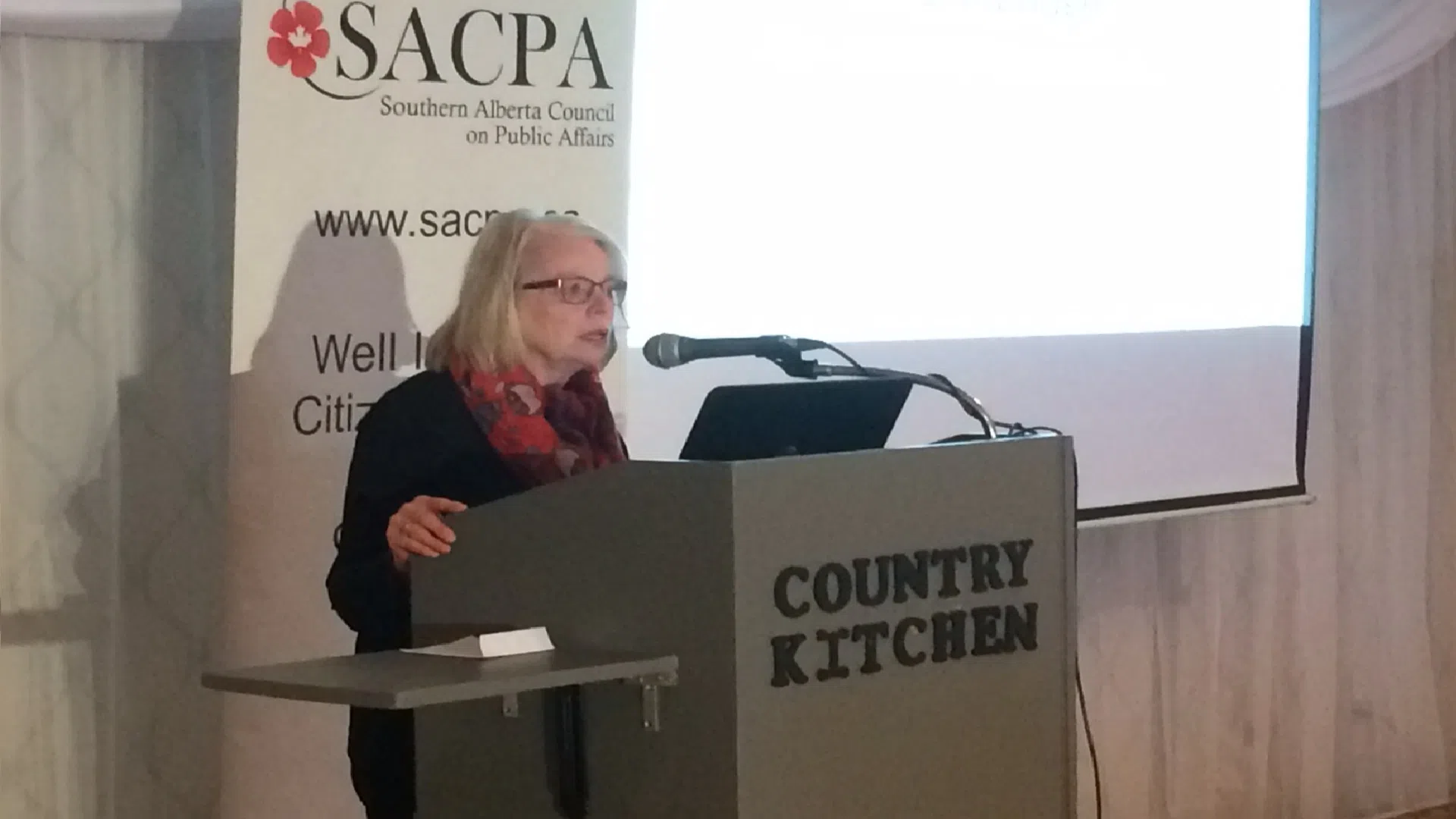
U of L professor discusses racism in Lethbridge
LETHBRIDGE – Racial tensions were the focus of a well-attended SACPA (Southern Alberta Council on Public Affairs) session Thursday afternoon.
Dr. Jo-Anne Fiske, a professor in the department of Women and Gender Studies at the University of Lethbridge – who has completed several research projects centred on the cultural and social foundations of racism – addressed the controversial matter, saying it has been brought to the surface in our community by a recent serious criminal act.
“I think one of the things that we have to recognize is that racial tensions go back as far as Lethbridge goes back, and so the expression of racial tensions that have been very bitter, vociferous recently, are not new and I do not think they were sparked by any one incidents of violence, but rather certain responses in the public have given people permission, as it were, to speak up with anger, bitterness and hatred,” stated Fiske.
She explained that the problem stems from a way of thinking, in which we look at individuals that have been disparaged and treated unfairly throughout history, through what she calls a ‘Master Status’.


